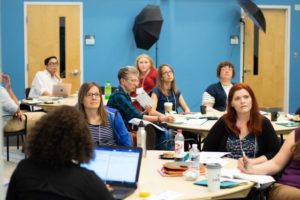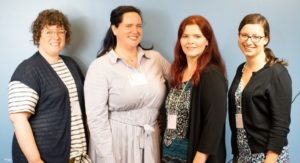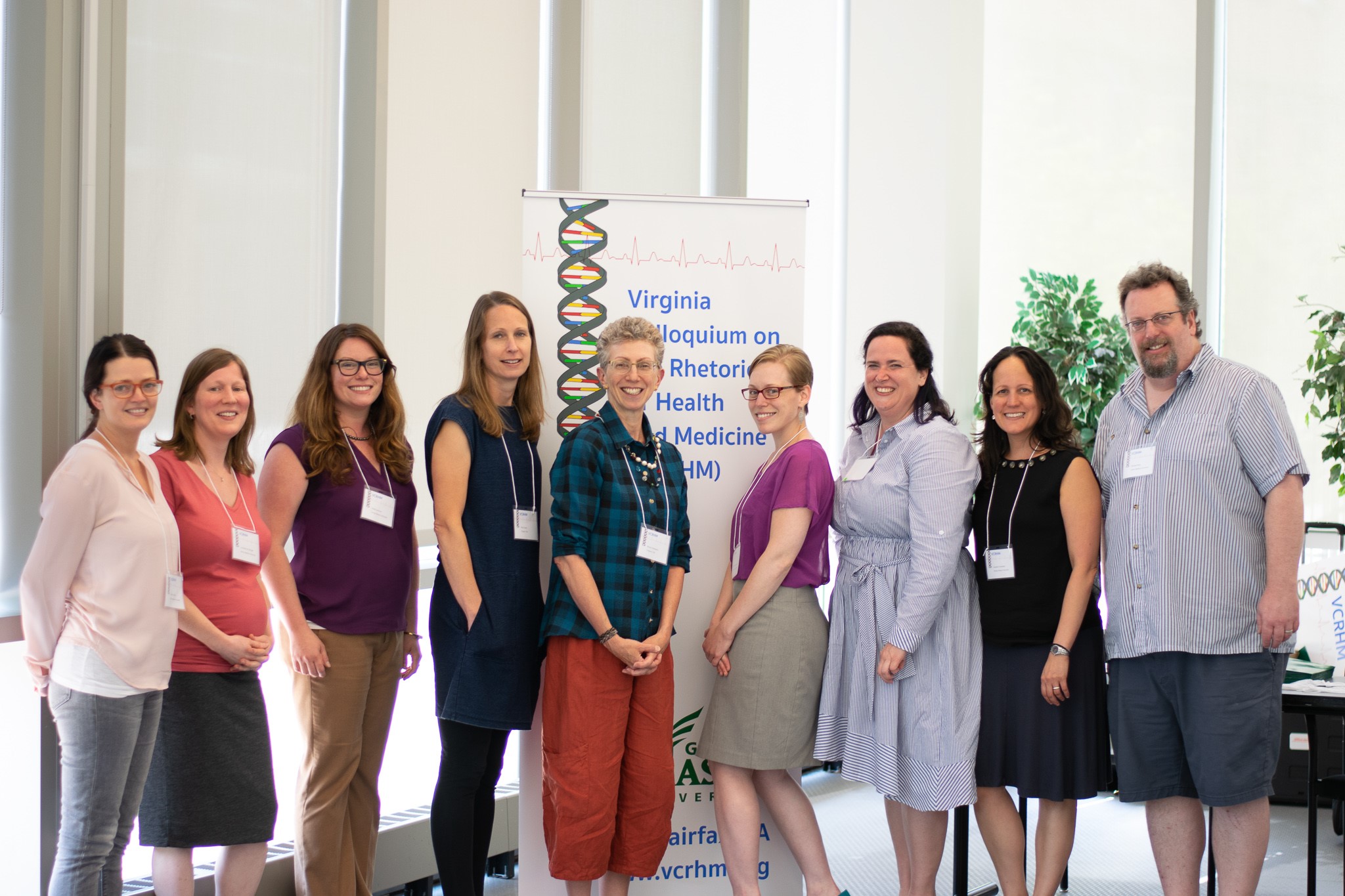Just as the nation as a whole is grappling with issues from A to Z in healthcare, concerned scholars studying the Rhetoric of Health and Medicine in Virginia were interested in what role they could play in moving and improving their field within the Commonwealth. While faculty members and students around the state have previously communicated on a range of topics via emails or brief phone calls, they saw the need to work collaboratively to create a space for research and study.
“What we knew was that our discipline continues to grow in Virginia, with programs at Virginia Tech, Old Dominion, and James Madison as well has here at Mason. But we didn’t want to grow these programs in silos,” explains Heidi Lawrence, assistant professor in writing and rhetoric at Mason. “What we also knew was that by working together, it would be better for our collective student and faculty bodies as well as to help advance critical medical communications and messaging issues at the state level.”
When Lawrence saw the opportunity to use a 4-VA grant to achieve that goal, she jumped at the chance to take the important first step in generating collegiality in the field among the Virginia partner schools.
 The grant provided the funding for a first-of-its-kind statewide symposium “The Virginia Colloquium on the Rhetoric of Health and Medicine” (VCRHM).
The grant provided the funding for a first-of-its-kind statewide symposium “The Virginia Colloquium on the Rhetoric of Health and Medicine” (VCRHM).
Their goal was three pronged: to provide students and faculty with mentoring and academic opportunities; to look closely at what role the group could collectively play in improving healthcare of populations across the state utilizing their humanistic approach; and to explore possibilities for pursuing funded research in the future.
The Colloquium was hosted at Mason in June 2018 and featured a keynote address by internationally-renowned health and medical communication expert Dr. Kirk St. Amant of Louisiana Tech University, presentations from four graduate students, a lightning round collaboration session and concluded with a panel presentation on pursuing further research. Attendees included representatives from Mason, Madison, Tech, the University of Mary Washington, and the University Detroit Mercy.
Evaluations from the workshop illustrate the success of the event:
“It was a treat meeting other students and faculty in Virginia (and elsewhere) doing RHM work. I especially like the opportunity for faculty to mentor students and, in turn, learn from them.”
“The networking was most valuable. The unique perspectives that people brought were also equally valuable.”
Lawrence explains that the Colloquium participants are now moving forward as a team. In April, the second annual meeting of the VCRHM will be convened at Madison. During this workshop-based meeting, team members will use their expertise to tackle a difficult and weighty issue in Virginia – managing communications and messaging as applied to the opioid crisis. They are now analyzing methods of rhetoric to develop a humanities-based approach to the problem, including collecting qualitative data on communities in crisis and working through mechanisms to communicate findings to community partners (e.g. hospitals, first responders, public health officials), and other stakeholders.
“If not for the 4-VA grant, we would never have been able to begin this important work,” says Lawrence. “We owe our foundation and progress to 4-VA — 100 percent!”

